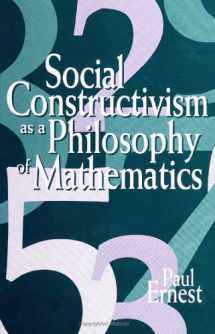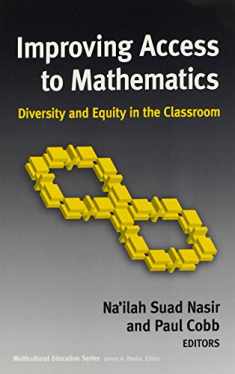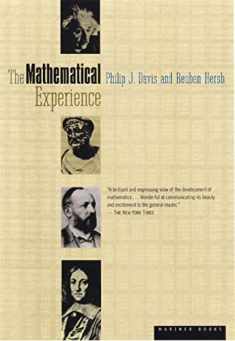
Social Constructivism as a Philosophy of Mathematics
ISBN-13:
9780791435885
ISBN-10:
0791435881
Edition:
First Edition
Author:
Paul Ernest
Publication date:
1997
Publisher:
State University of New York Press
Format:
Paperback
342 pages
Category:
Mathematics
,
Logic & Language
,
Philosophy
FREE US shipping
Book details
ISBN-13:
9780791435885
ISBN-10:
0791435881
Edition:
First Edition
Author:
Paul Ernest
Publication date:
1997
Publisher:
State University of New York Press
Format:
Paperback
342 pages
Category:
Mathematics
,
Logic & Language
,
Philosophy
Summary
Social Constructivism as a Philosophy of Mathematics (ISBN-13: 9780791435885 and ISBN-10: 0791435881), written by authors
Paul Ernest, was published by State University of New York Press in 1997.
With an overall rating of 4.0 stars, it's a notable title among other
Mathematics
(Logic & Language, Philosophy) books. You can easily purchase or rent Social Constructivism as a Philosophy of Mathematics (Paperback) from BooksRun,
along with many other new and used
Mathematics
books
and textbooks.
And, if you're looking to sell your copy, our current buyback offer is $0.3.
Description
Extends the ideas of social constructivism to the philosophy of mathematics, developing a powerful critique of traditional absolutist conceptions of mathematics, and proposing a reconceptualization of the philosophy of mathematics.
Proposing social constructivism as a novel philosophy of mathematics, this book is inspired by current work in sociology of knowledge and social studies of science. It extends the ideas of social constructivism to the philosophy of mathematics, developing a whole set of new notions. The outcome is a powerful critique of traditional absolutist conceptions of mathematics, as well as of the field of philosophy of mathematics itself. Proposed are a reconceptualization of the philosophy of mathematics and a new set of adequacy criteria.
The book offers novel analyses of the important but under-recognized contributions of Wittgenstein and Lakatos to the philosophy of mathematics. Building on their ideas, it develops a theory of mathematical knowledge and its relation to the social context. It offers an original theory of mathematical knowledge based on the concept of conversation, and develops the rhetoric of mathematics to account for proof in mathematics. Another novel feature is the account of the social construction of subjective knowledge, which relates the learning of mathematics to philosophy of mathematics via the development of the individual mathematician. It concludes by considering the values of mathematics and its social responsibility.
Proposing social constructivism as a novel philosophy of mathematics, this book is inspired by current work in sociology of knowledge and social studies of science. It extends the ideas of social constructivism to the philosophy of mathematics, developing a whole set of new notions. The outcome is a powerful critique of traditional absolutist conceptions of mathematics, as well as of the field of philosophy of mathematics itself. Proposed are a reconceptualization of the philosophy of mathematics and a new set of adequacy criteria.
The book offers novel analyses of the important but under-recognized contributions of Wittgenstein and Lakatos to the philosophy of mathematics. Building on their ideas, it develops a theory of mathematical knowledge and its relation to the social context. It offers an original theory of mathematical knowledge based on the concept of conversation, and develops the rhetoric of mathematics to account for proof in mathematics. Another novel feature is the account of the social construction of subjective knowledge, which relates the learning of mathematics to philosophy of mathematics via the development of the individual mathematician. It concludes by considering the values of mathematics and its social responsibility.


We would LOVE it if you could help us and other readers by reviewing the book
Book review

Congratulations! We have received your book review.
{user}
{createdAt}
by {truncated_author}




